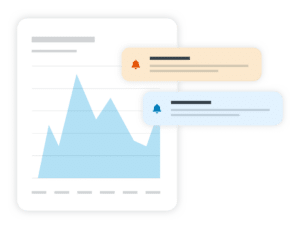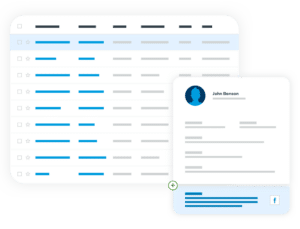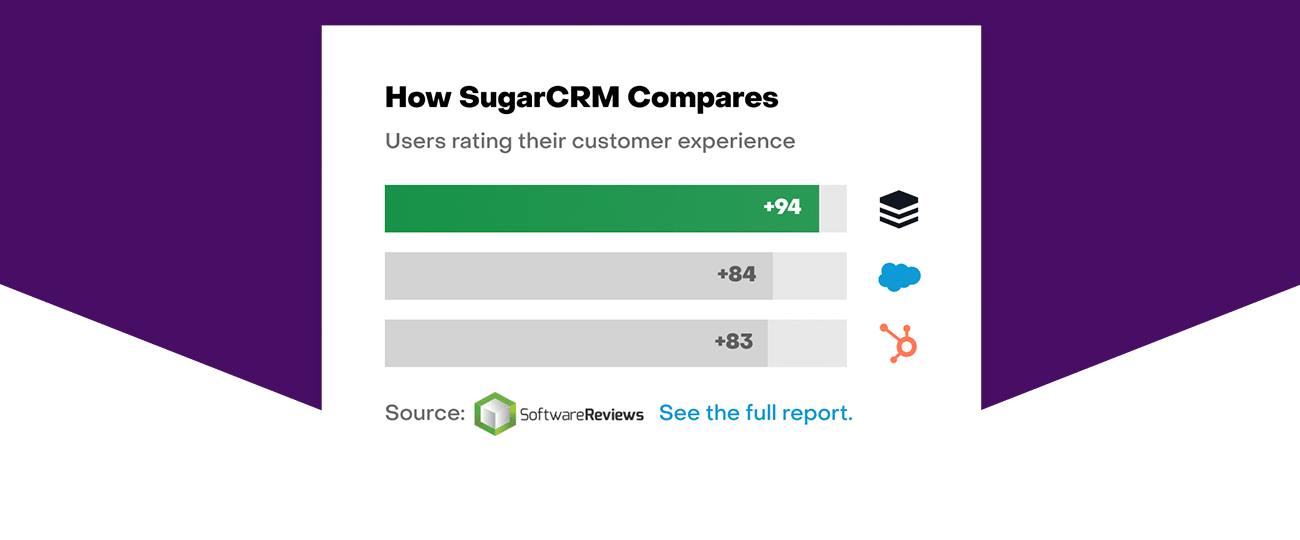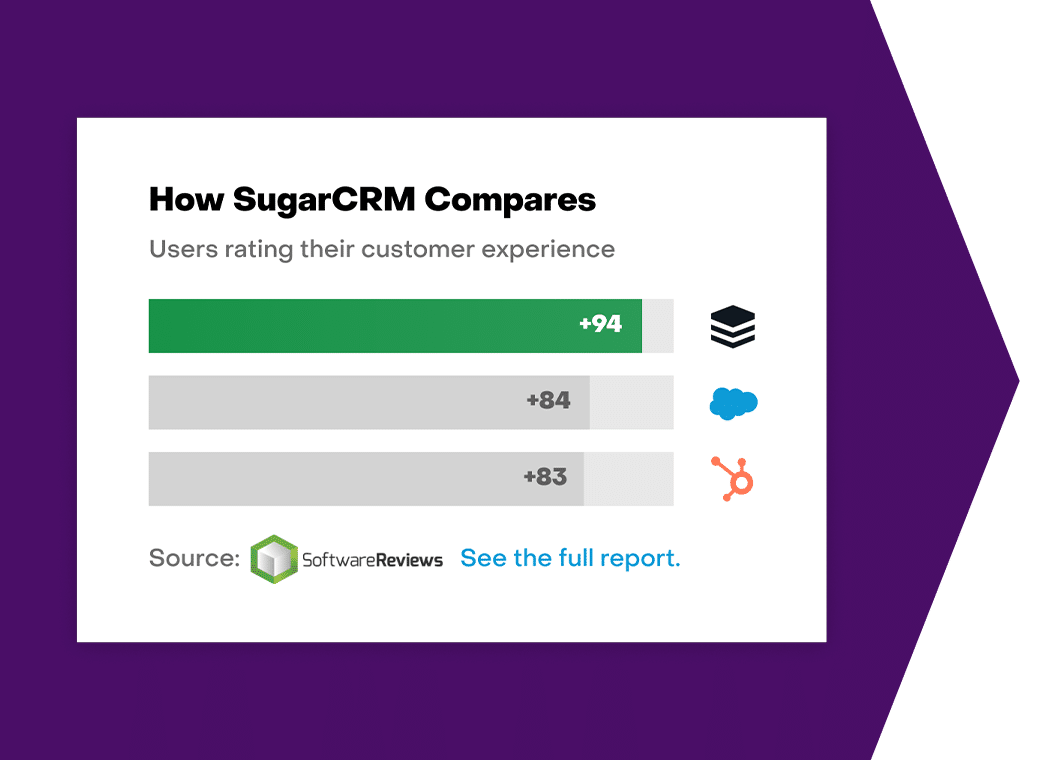Got Analytics? Becoming a Data-Driven Marketer
In recent years, there’s been a lot of talk about data as “the new oil.” With endless businesses springing up around mining and making sense of it, it’s an easy comparison to make. Same as with the oil boom, there are endless opportunities for businesses and budding entrepreneurs to capitalize on.
Businesses need to find ways to leverage data to succeed. From a marketing perspective, leveraging data helps accurately track campaign performance, identify new market opportunities, and understand leads and customers in high fidelity. A business that doesn’t best use data in its marketing efforts will handily surrender its prospects to one that does.
But there’s a catch. While data is indispensable to any modern business, it’s useless by itself. Up to 95% of all businesses say that managing their unstructured data is a problem. Yet managing unstructured data isn’t the real problem—understanding it is. What companies need is analytics.
What we'll Cover:
The Distinction Between Data and Analytics
Unless you’re a skilled data scientist, you can’t do much with raw data. To get real value, you need to understand how that data translates into insights and then turn them into measurable actions.
Marketers need a way to analyze and understand what the endless data points and metrics are telling them. Analytics helps them understand the story that’s hidden in that data. Like oil needs refining, data needs analytics to refine it into something valuable to the business.
Analytics sits on top of your data and helps you draw out the intelligence and insights hiding in it. For example, by surfacing trends in your data and overlying different points, you can analyze, compare, and discern actionable strategies for your marketing campaigns.
Bringing data and reliable analytics together helps you become a data-driven marketer who acts purposefully and makes sound strategic decisions backed by intelligence.
How Data Analytics Drives Marketing Success
In the past, marketers often had to make decisions based on experience and gut instincts. While customer surveys helped guide them, there wasn’t much else to go on. Sure, there were trade publications espousing industry and market trends, but they weren’t sufficient for guiding a successful marketing strategy.
Today, we have access to sophisticated tools that collect and measure data and provide savvy marketers with the insights they need to make the best decisions. Businesses small and large agree that it’s crucial, meaning it’s worth taking the time to understand the benefits provided by a data-driven marketing strategy.
Enhanced Customer Clarity
A high-definition view of your customers and target audience is crucial to your marketing efforts. Data analytics enables marketers to understand customer preferences and behavior truly. By leveraging predictive insights and connecting more closely to their customers, they can anticipate their behaviors and identify real-time opportunities.
Imagine if you had the answers to the following questions about your customers:
- What are their individual life goals?
- What kind of hobbies do they have?
- Why do they use your products and services over your competitor’s offerings?
Answering these questions helps you build detailed and highly accurate customer personas that inform your marketing strategies and overall business objectives. With these insights, marketers can target the right customers with the right message at precisely the right time.
Stronger Connections, at Scale
Clarity strengthens your customer relationships significantly. But it goes even further than that. By accurately matching a customer’s engagement and expectations, businesses can offer a tailored experience to a far greater number of customers.
Consider the kind of personal interactions and customer experience a company with only a handful of clients provides. Their clients receive—and likely expect—a personalized, highly responsive experience. But when that same business starts scaling, providing that same level of personalization is difficult to maintain.
By leveraging the right analytics, marketers can provide the same experience to a much wider audience. The amount of data from platforms, devices, and social channels helps them tailor their messages and deliver a superb customer experience at scale.
Identify Opportunities and Improve Your Business
With the right analytics in place, data can help you identify significant opportunities you wouldn’t otherwise catch. Insights such as pain points in the customer experience or hiccups in the buying journey pave the way to enhance your processes or create new solutions altogether.
You get more opportunities for upselling and cross-selling when you understand your target audience’s preferences and behaviors. Insights into your customers’ online habits help you identify when and how to target them with that unique offer that provides the most value to them and your business, directly impacting your cost to serve and customer loyalty.
All these insights about your existing and prospective customers help guide your business’s growth by improving your products and services. By eliminating the guesswork involved in product development and business strategy, you have a sure path forward for growing and scaling your company.
How to Become a Data-Driven Marketer
Despite the innumerable benefits that data-driven marketing provides, it’s not as complicated as it sounds. With the right tools and strategies, you can lay the groundwork for turning your marketing team into a well-oiled, analytically driven customer experience powerhouse.
1. Use Existing Data to Set Goals
Having clear objectives from the beginning is vital. These goals help clarify what you want to achieve and, in turn, make it easier to come up with the perfect plan to get there.
Take an honest look at your business’s existing data. Figure out what you’re lacking and determine your best strategies for filling those gaps. And be sure that everyone within your company who can provide input is aware of the existing resources and constraints. Collaborate with them to build a road map for getting to where you need to be.
Remember that your marketing and larger business objectives shouldn’t be conjured from thin air. This is precisely why you analyze your data. You leverage what you currently have, to determine what’s feasible. In instances where you’re just starting, focus on a strategy to gather data so you have something to build on going forward.
2. Put the Right Tools in Place
Getting data that provides you with the insights you need largely depends on the tools you use. Using the right tool matters, from how visitors interact with your website and social media to successful email campaigns. Gathering accurate data points and translating them into insights is critical to the success of a data-driven marketer.
An excellent CRM focusing on marketing automation and data collection is integral to any data-driven strategy. Choosing a solution that leverages automation helps your marketing team focus on the larger picture. And, of course, your CRM should have sophisticated data collection techniques to help fill in the blind spots and help your marketers make accurate predictions about future campaign efforts.
3. Personalize Your Campaigns
Being a data-driven marketer means understanding your customers with absolute clarity. Knowing their preferences, behaviors, and communication style empower you to personalize your interactions. Whether it’s an email or a push notification, a personal touch goes a lot further than a generic catch-all campaign.

The understanding you get from analyzing your data should guide this personalization. It informs you on every aspect, including:
- Determining the type of message to use
- Which channel to send your message over
- The kind of content within the message
- The time of day your message will get the best response
But don’t stop at marketing messages. These insights also provide you with strategies to segment and personalize every step of the sales funnel. Consider how you might entice your customers with a product or service that addresses their unique needs or pain points. With enough data and the right analytics platform, you can move from the marketing status quo to a campaign that truly astounds your prospects and converts them into loyal customers.
4. Leverage Marketing Automation
With endless data points to analyze across various channels, data-driven marketing can seem daunting. Overwhelming as it is, it’s necessary, and there are tools to help make the process far more manageable. Marketing automation is one tool that every data-driven marketer should use.
Marketing automation tools let you offload the busy work required for data-driven marketing. Here are just a few of the benefits it provides:
- Better lead management and increased conversion rates
- More alignment and collaboration across sales and marketing teams
- Scalable processes that grow with your business
- Increased efficiency and reduced staffing costs for businesses
For example, marketing automation can provide workflows that send out appropriate messages triggered by a prospect’s behavior or action. Automating these events and tasks frees marketers to analyze and optimize their campaigns rather than doing busywork.

More importantly, it enables optimal communication times based on your customers’ needs, not when the marketing team is in the office. Your marketers do the analytical work and determine the best strategies; the platform does the rest.
5. Keep Gathering and Analyzing Data
Data and the insights it provides works a little like compound interest. The more data you have, the more insights you get. Continuously growing your data collection, whether through added channels or improving the clarity on what you already collect, is the essential part of being a data-driven marketer.
Consider what decisions you’ll make down the road. Then, think about the type of information you can gather about your prospects and customers, their habits, your market, and everything in between. Where are your blind spots? What do you need to know to offer more value to your customers? How can you get that data to answer those questions?
The truly data-driven marketer constantly strives for more knowledge and more insights. The more data you have, the better you can provide a great experience tailored to your prospects and customers.
6. Constantly Measure and Improve
A cornerstone of data-driven marketing is monitoring, measuring, and improving your efforts. No more struggling to define clear outcomes of a marketing campaign or attempting to justify its value. Everything you need to measure and track your marketing investment is at your fingertips.
The savvy marketer who effectively leverages data and analytics knows their campaign strategies aren’t created on a whim. They back up their decisions by ongoing efforts in collecting, organizing, and analyzing real customer and market data. This data provides the marketer with the best possible strategies to improve ROI, strengthen relationships and enhance the customer experience from top to bottom.
Transform Your Marketing Efforts with SugarCRM
There’s simply no getting around it: Data and analytics are now an integral part of every marketing strategy. As more consumers expect more personal and relevant messages from their interactions with your company, you must be ready to answer the call. The businesses not utilizing the data available to them to create targeted, personal campaigns and incredible customer experiences will fall by the wayside.
Transform your business’s marketing efforts with SugarCRM, a leading marketing automation and customer service platform. It’s a time-aware solution that helps your business look into the past, have situational awareness of the present, and make bankable predictions. By pairing sophisticated marketing automation with accurate data collection and analysis, SugarCRM drives your business to new levels of performance. Get in touch with us today to request a demo.





